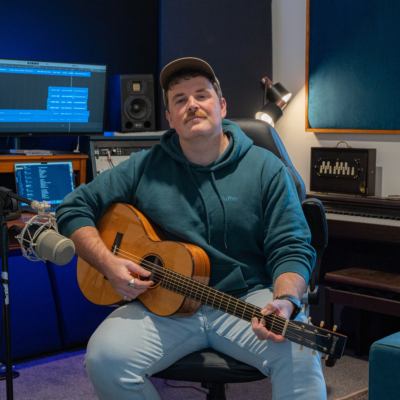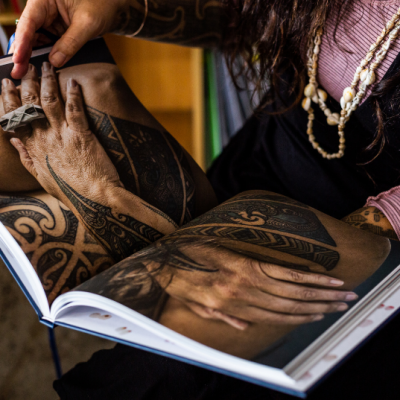Creative Patapatai
Meet Dan Sharp, the soulful troubadour of Mt Maunganui whose music is capturing listeners with its deep authenticity. After leaving a corporate finance career, Dan dived headfirst into the music world. His latest album, “Between the Brave, Bold and Given Up,” is a powerful journey of masterful storytelling. We learn about Dan’s creative process, the meaning behind his new release, and which musician he’d most want to open a show for (dead or alive).
Your occupation, job title, artistic discipline (or very brief description of what you do):
I’m a singer-songwriter and recording artist, who also dabbles in music production. I play guitar and sing and have been making a living from doing so for the past several years.
What cities/towns have you lived in (or spent more than a few months in) beginning with the place of your birth?
I grew up in Thames, up the Kauaeranga Valley, and I lived locally until I was 18. I shot off to Dunedin to study after school and I really got into regularly playing music live there in the bars and at flat parties, etc. I’ve had decent stints in Auckland, Taupō and plenty of time travelling since, and now I live in beautiful Mt Maunganui.
Do you find solitude essential to your creative process, or do you thrive in collaborative environments as well?
I do both (work alone and work with others) and I find both have their place. Often if I’ve done too much of one, it means it’s time to do more of the other and vice versa.
I find it pretty important that there is some kind of creative connection to make the collaborative stuff work, and I’ve done lots of it. I’ve been on writing trips where I’ve worked with a different person every day for a few weeks. I’ve been on writing camps where you get put into different groups each day and try to come up with something for someone in the room.
I also spend a lot of time making music on my own, and there are pros and cons to both processes. My song ‘The Way That You Used To’ was a perfect example of a collaboration that just worked. Two of us wrote that song in about 40 minutes and it’s still one of my best. As a result of it being a strong song, it was quite easy to produce and record, and was finished in a couple of days. NZ on Air supported it and it has gathered about 250k streams since.
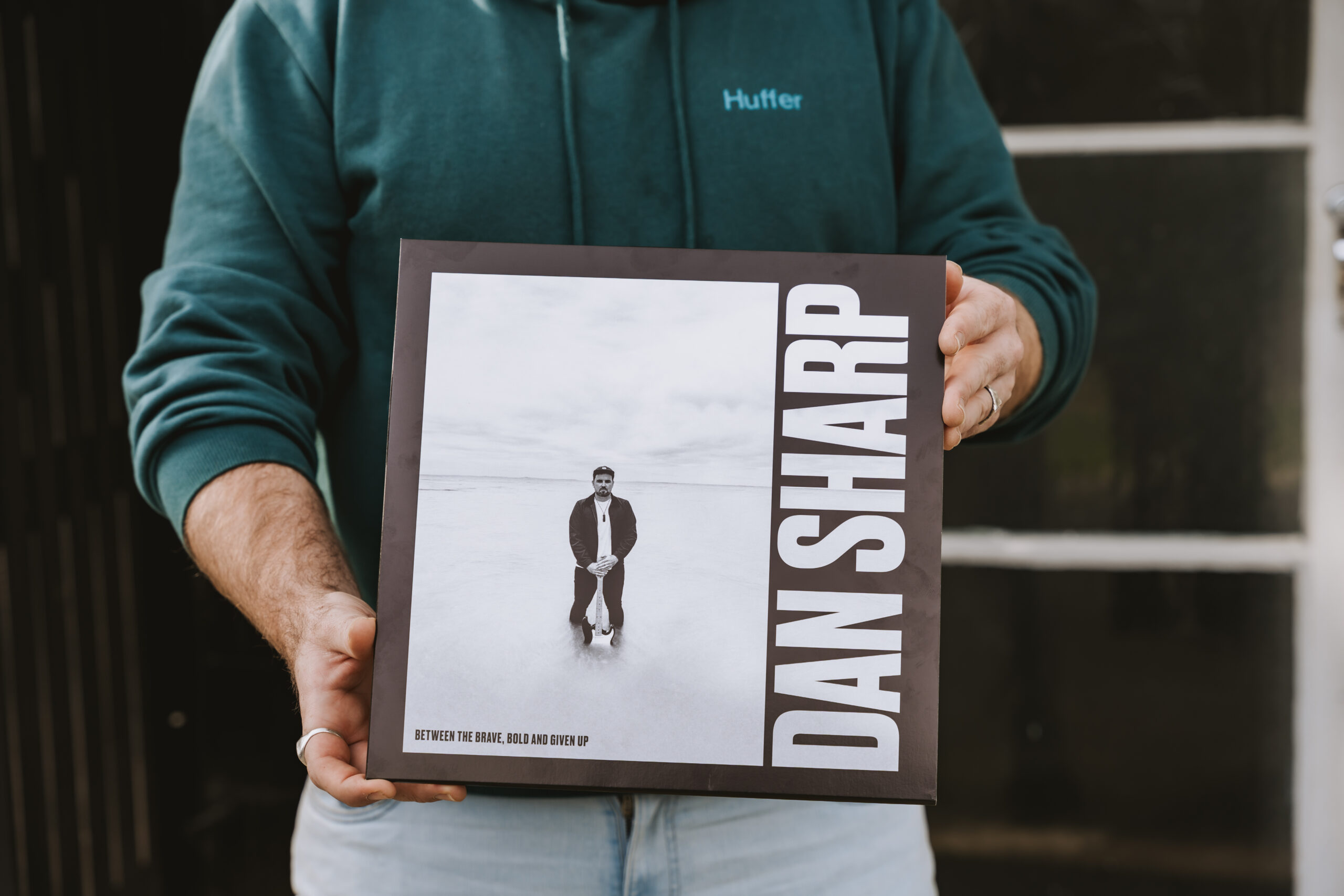
What’s your favourite Bay of Plenty landscape, park, building, location, suburb, or side street? Why?
It’s the natural beauty of the BOP that I love more than the urban environments. We spent lots time over near Ōpōtiki as kids, camping in the hills and staying with family in Tirohanga. I still love going back there. We camped there again this summer, right by a river, backed onto native bush. You get a clear night and there’s countless stars, all the native bird sounds. It’s pretty idyllic! In our day-to-day here, we get a coffee at Tay Street Store and go and watch the sun come up pretty often. It’s amazing, especially in winter when it’s pretty quiet.
Your album “Between the Brave, Bold and Given Up” has an intriguing title. Can you share the story behind this title and how it encapsulates the themes of the album?
Yeah, that title sprung out of one of the songs (track 1, ‘Firestarter’). The album was written in various places but I had a chunk of time in London when I started the process and that song came quite early. The full line is, “It’s cold in the city of lost causes, between the brave, bold and given up,” and in the song’s context it sets a scene of a young, naïve hopeful against the backdrop of this place that contains all of these different people in varying states of existence. The city itself can nurture, break or embolden, kind of thing. As the album took shape it explored more of those states, and how an individual can exist somewhere in between them at any one time; without knowing it, when I wrote the song, it perfectly captured the kind of ‘zoomed out’ vein that runs through the whole album.
What’s an average day in your life at present?
I live quite seasonally, so it’s ever-changing. In the summer I am usually busier with gigs and spend a lot more time away from home. This winter is my first in New Zealand for a couple of years, which is actually kind of exciting. I’ve just got into the swing of gigs being a bit quieter and having more time, so this week it’s been some yoga, getting up the Mount or the Pap hills, generally a couple of coffees sprinkled in the mix, and ideally about 6 to 7 hours of work in my studio each day on my own projects, broken into chunks. That can be three hours of songwriting. I spent a couple hours on a new website yesterday. Editing a live video and starting to fill the calendar in for next summer are work-in-progress tasks at the moment, too. There is always something to do and I’m very much in the DIY space, so I end up pretty much being across everything, for better or worse. In the weekends I’m usually playing music somewhere, whether at a bar or a private function, or enjoying time with friends and family!
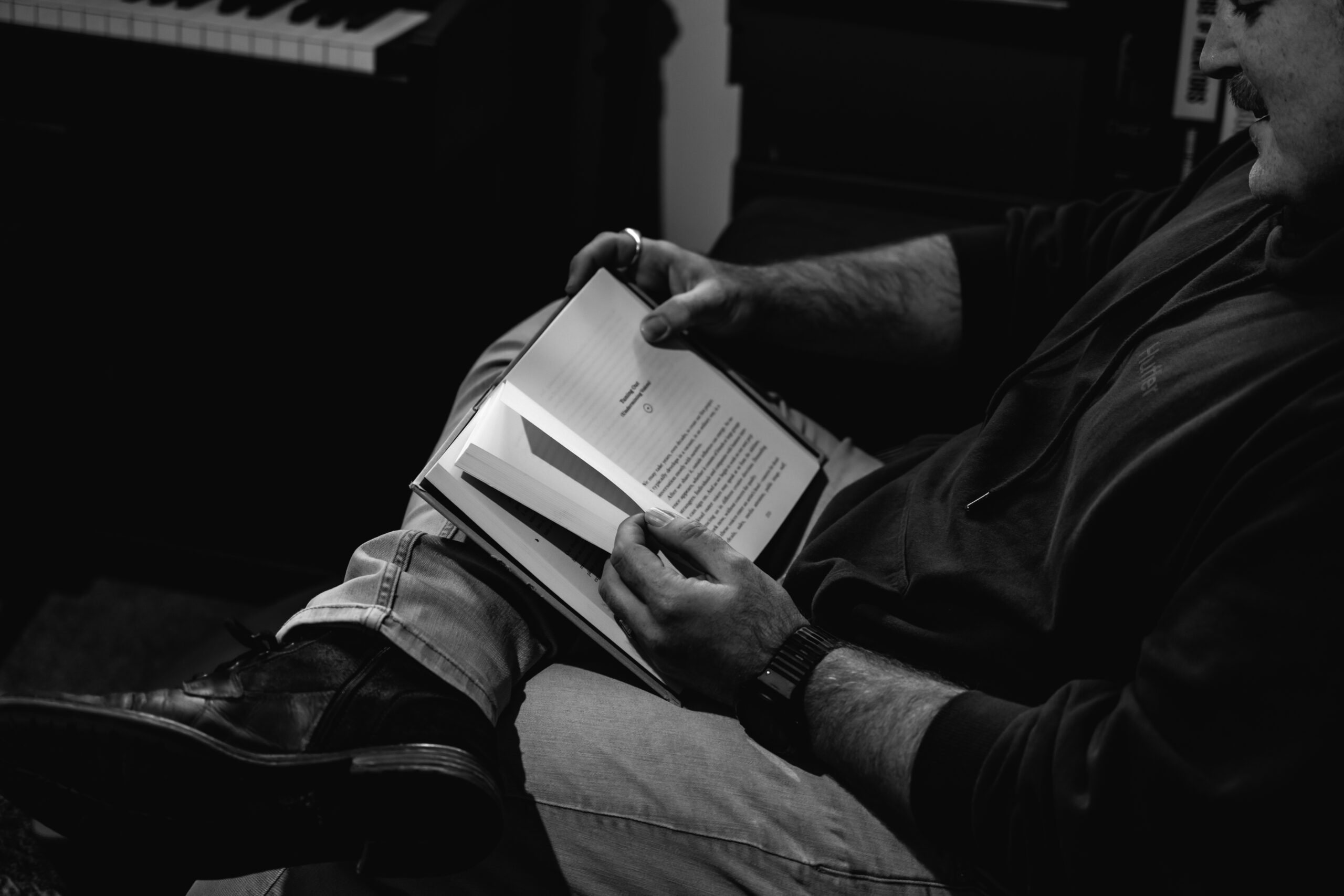
How do you want your music to make audiences feel?
It really depends on the song, I think. I want people to feel something, for sure. Different music can make me feel uplifted, inspired, energised, sentimental, nostalgic, relaxed, etc.
I don’t really write from a place of thinking about the audience, to be fair. I think more along the lines of “What does this story/idea/song need to be cohesive and effective?”
I find I’m at my best when it feels like the song needs to be written, when it says something in an interesting way. or when it’s just reflective of a significant moment or human experience.
I love it when a song or a lyric helps you make sense of a situation or provides another perspective. I also love it when a huge drum fill comes in, followed by some massive guitars and a big soaring vocal and the whole thing just hits you in the heart. So, depending on the song, it could be one of many things!
If you could open a show for any musician in the world (dead or alive), who would it be? Why?
If I had to choose someone, it would probably be Springsteen. Huge crowd, huge stage. An audience that’s up for some tenderness as much as they are for some rock. That would be super cool. I think it would mean the world to me to be recognised by Springsteen or a few others of my songwriting heroes as being a good songwriter, and be asked to support them as a result of that. One of my local songwriting heroes once told me that my songs inspire them to pick up a guitar and write. I was really moved by that.
If you didn’t become a musician/music professional, what would you be doing?
Funnily enough, I’ve been down that path. Before pursuing my music full time, I worked for PwC, a big financial consulting firm in Auckland. I had two-and-a-half years there, and would play music on the weekends and in the evenings. I was reasonably good with numbers and enjoyed economics at school. I actually have a commerce degree in economics and corporate finance. Don’t put it to use much these days!
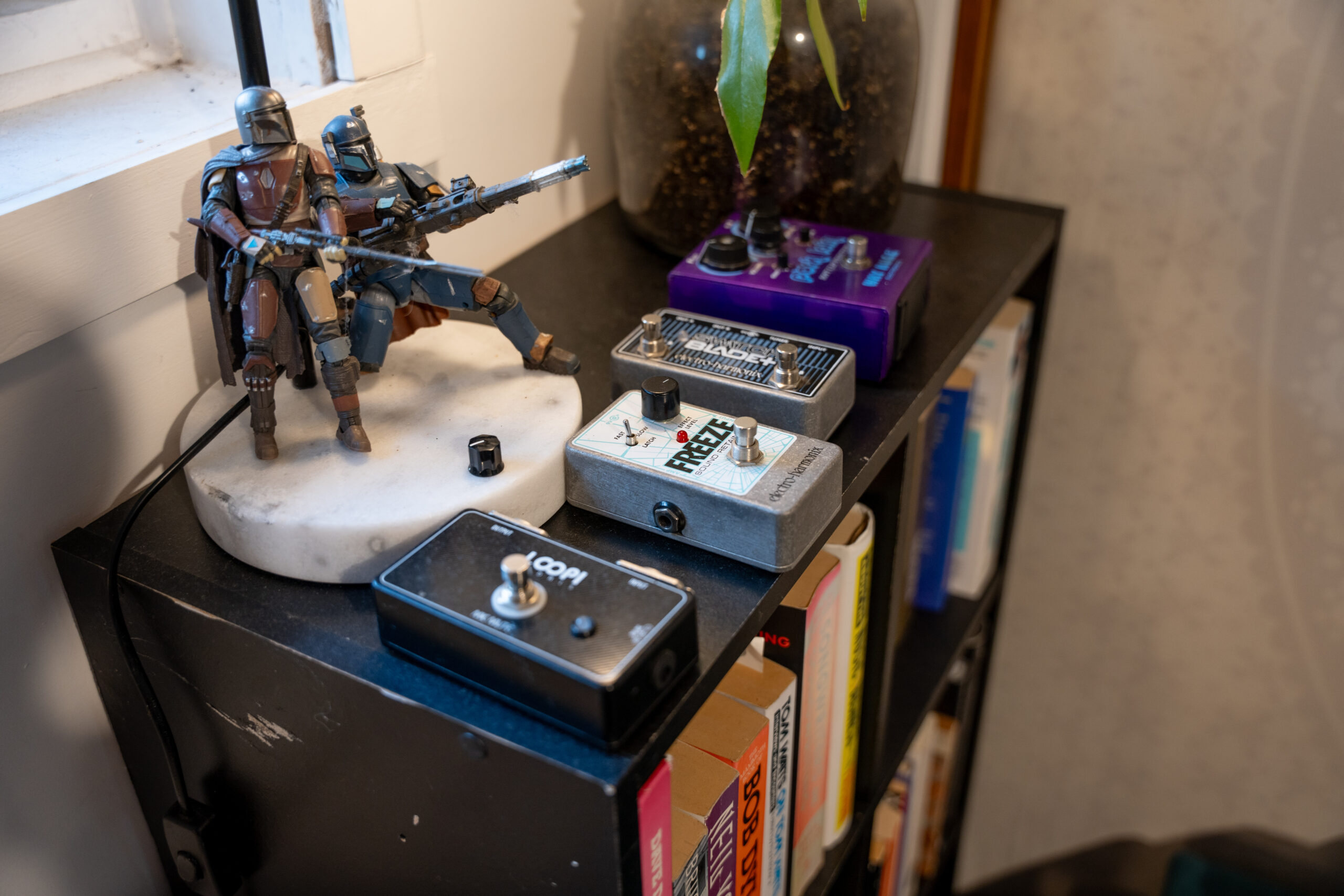
What music was present and still memorable from your youth/adolescence?
I was born in 1991, so was forming my own ideas and tastes around music in the late 90s/early 2000s. Bands and the guitar were still a massive part of pop culture then and it was a “cool” thing to do. Red Hot Chili Peppers, Rage Against the Machine, Metallica, No Doubt. These were the bands that were being covered by the high school bands at lunchtime concerts.
It was also the era before YouTube was a thing. Quite a few people around me could play a bit and I remember sort of ‘swapping’ ideas; if you’d learned something, then you’d get shown something. The internet was still dial-up at my house, so I would sit there playing along with Metallica songs trying to figure out solos and stuff. I got given a live Metallica CD that my mum’s colleague had ripped a copy of. That actually really got my guitar playing going.
For you as a creative person, who are three influential artists or thinkers?
Interesting question! I like bits and pieces from a wide variety of places. Lately, I have been connecting with Ryan Holiday’s work around curating older stoic philosophy into a modern format. I find it helpful to have some of this as a ‘zoomed out’ mental framework to fall back on. When you are working daily in your own creative ‘business’, there aren’t always positive feedback loops (like you might get in a regular job when someone buys something or you finish a project, etc.), so you have to find a way to keep yourself going and staying somewhat positive and motivated.
Creative minds like Patti Smith and Jim Morrison are just huge wells of inspiration. The lyrics of a Scottish artist, Scott Hutchison (from the band Frightened Rabbit) have impacted me more than anyone else in the past year or two.
I also love Joe Dispenza in the mindfulness, visualisation space. There are plenty of fitness folk I get a lot of benefit out of reading and listening to as well. I mention all of that, because I’ve learned I need to be keeping myself heathy in a number of areas of my life, in order for my creativity, and just my general happiness, to thrive.
Recording much of your album yourself sounds like a massive undertaking. What were some of the biggest challenges you faced during this process, and what did you learn from it?
The biggest challenges would be mental fatigue, apathy, and losing “the forest for the trees”. I was, at times, doing some pretty big days trying to do everything myself to keep costs down, as well as to get the experience. You can do a day’s work and not have realised that the idea you started from wasn’t really working, or you just aren’t connecting with something, or your ears are fatigued so you aren’t hearing a certain frequency well. Or maybe you’re struggling to play a part well, and you’re getting frustrated and are no longer making decisions from the right headspace, etc.
I had my studio set up on an orchard in Katikati and I was super grateful for the space and time to go through the process. I learned so much from both a technical and a holistic standpoint. I also learned a lot about what I don’t know and where I’m better to outsource certain parts of the process. I’ve definitely taken the longer road to creating the art I want to create but I also think I’m on a pretty sustainable path, where I could do lots of it myself if I needed to, which feels nice.
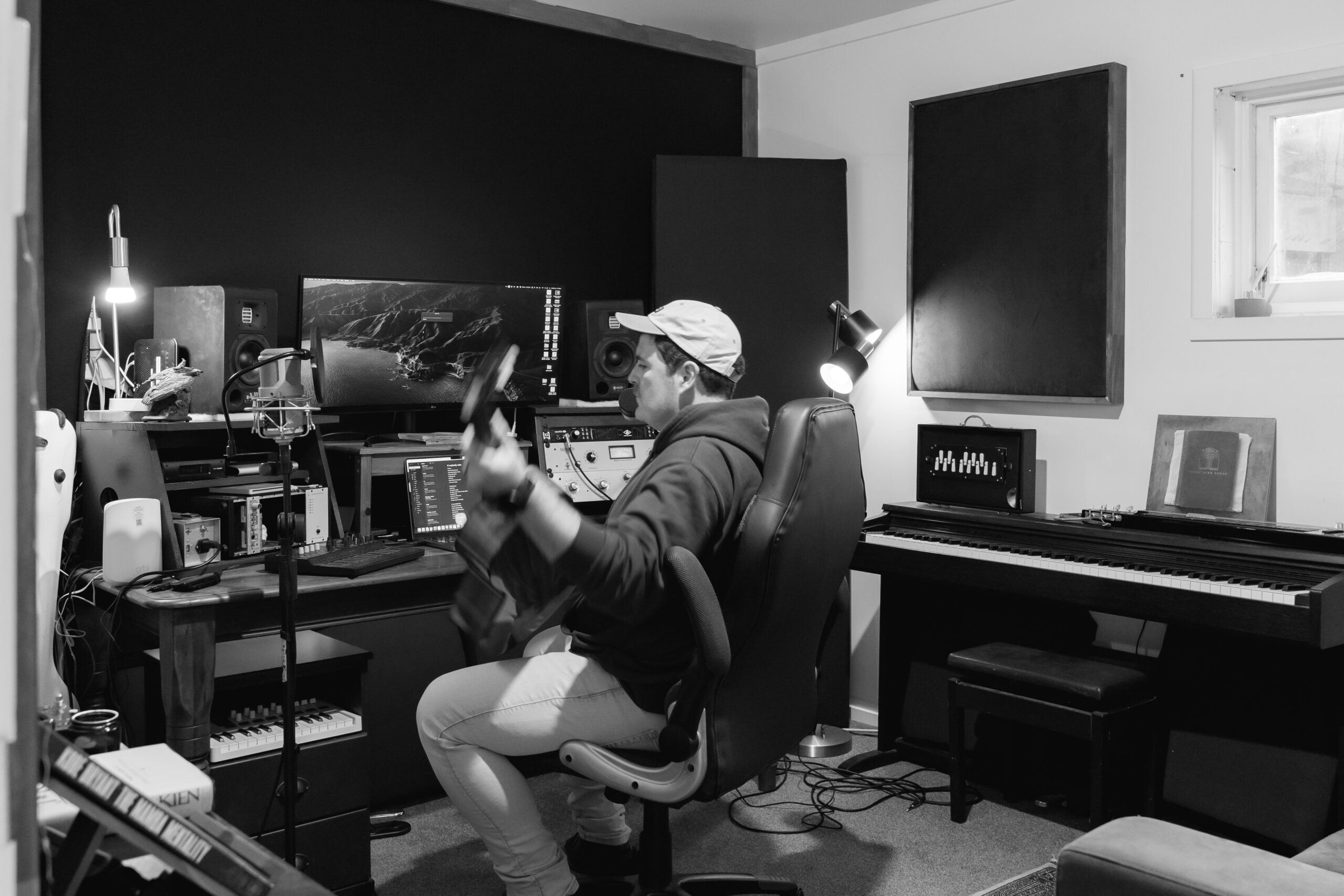
If you went away from the Bay of Plenty for a long time and then came back, what are the first three things you would do or visit?
Hmm. I’m assuming we are talking mid-summer, sunny day. In that case a Mt Maunganui walk and a beach swim. One of the most beautiful spots I know of is Tarawera Falls out near Kawerau. My fiancé and I had our first date out there, so it’s definitely a special spot. I’d probably head that way third!
What is missing or lacking from your Bay of Plenty community or environment?
I think there is an amazing community of artists and creatives locally. I’ve been blown away, on the music front, by how much talent is in this relatively small area. There are obviously hugely successful ones and then smaller, emerging creatives. I think for that smaller group it can feel hard to connect your work with an audience and, on average, Kiwis aren’t as adventurous and as willing to go and see something new.
I don’t really have a solution to that but if I were to be able to magically wish for something to change in the community it would be more appetite from people locally to connect with and experience great art.
How are you navigating Aotearoa New Zealand’s music/media landscape? What strategies are you using to get your music heard?
I heard from a producer friend in Nashville yesterday who said, “When you finish recording a song, you’re ten percent of the way there; the rest of the work is about getting it out there.” I would say that rings pretty true, as difficult as that can be to hear for artists who just love the creative process (and not the marketing and everything else).
In New Zealand we are both blessed and burdened by being a relatively small market, where there is less of an obvious audience for niche art, but perhaps also less competition. One thing I like here is that the people behind-the-scene of events, as well as within the media and the music industry, have an appreciation for the ‘grass roots, emerging-talent-trying-to-make-it’ artists.
I’ve definitely found that being an effective communicator, being professional and doing the work has been rewarded with opportunities here. From playing at Rhythm and Vines to being on live-to-air national television show Breakfast, I’ve had some really awesome experiences here in New Zealand that have come about from a combination of hard work and being friendly, professional, and showing gratitude.
What was your first real job, second, third?
At 16 I was stacking bread at PAK’n’SAVE and The Warehouse for Tip Top on weekends and sometimes before school. It was early mornings, but it meant I got into The Warehouse before it opened and could look at the CDs that had been added to clearance. I found some of my favorite albums for $1 or less.
Second, I worked for a radio station in the summer, and third, I went and lived and worked on a resort island in Australia for a summer, with a bunch of mates. Pretty good start to working life!
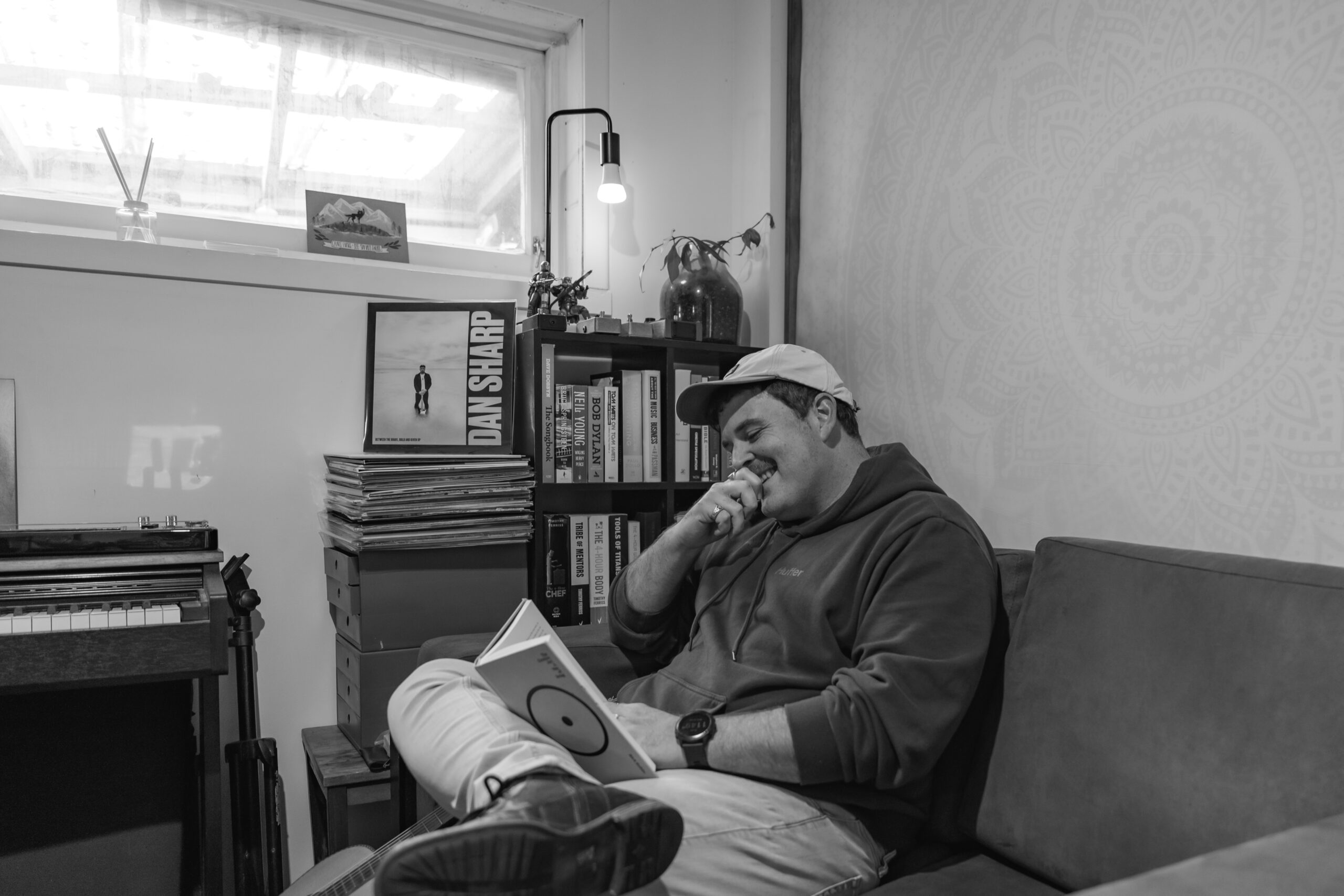
Where would you like to live, but have yet to?
I have a calling to Ireland and I also think there will be some time in the future where a stint in the U.S. would be cool. Who knows!
What word of advice would you offer an aspiring creative person?
I’m working on better nurturing my own creativity and trying to keep a healthy amount of fun and play in it.
Creativity is an essential part of my life and how I get satisfaction/happiness (as I’m sure it is for lots of people). I think it’s really healthy to have a creative outlet and I would probably encourage people to be creative for creativity’s sake.
It doesn’t have to have a goal, expectation, or outcome attached to it. Maybe it’s better when it doesn’t!
I’ve heard plenty of musicians who have lost the joy of playing their instrument, or singing, once it becomes their ‘job’. I’ve been in that camp at various points and I have to find ways to keep the fire lit, so to speak.
I had this really beautiful moment in a folk music store in Birmingham U.K.. I was playing for the New Zealand team at the Commonwealth Games and I had a decent part of a day to spare. I went to this store where there were all of these different instruments I’d never seen or heard of and just got lost in trying different things. The entire experience of playing them was ‘discovery’ and I realised after quite a while of playing, how fun and light it was to just play, kind of child-like, without expectations. I’ve ended up getting a couple of instruments since that I don’t really know how to play, that I just noodle around with, to try to bring that sense of play and discovery into my regular routine.
What’s the biggest problem about life in New Zealand? How you would solve it?
I mentioned above my producer friend in Nashville. We spoke yesterday and he is a Kiwi who is back in New Zealand for a bit. He said, “New Zealand is better in every single way except the ceiling for what’s possible with music is higher in the U.S.”. The truth to that statement depends a little on one’s goals but I bring that up because I find when people lament on how things aren’t working in New Zealand, or complain about various parts of life here, it’s often easy to forget that the wider world has pretty much every problem we have here, but usually on a much bigger scale.
New Zealand really is great. There are plenty of things that could be better but I feel like on the whole, this is still one of the best places in the whole world to live. If I could point to one thing that I think would make it better for everyone, it would be a greater supply of more affordable housing. I’m no builder/developer/town planner, so I don’t really have a solution, but the old idea of having a three-bedroom home on a quarter-acre section, with access to a city and proximity to jobs, schools, hobbies, etc.… Well, that idea feels long gone, especially in our bigger centres. Denser living allows for better services (public transport) and one day it will be a lot more normalised here to live in smaller, more affordable, urban-style living. I think things will have to go that way eventually. Just a hunch.
What is your dream of happiness?
Going to sleep at night, fulfilled with the day before and excited about the day following.
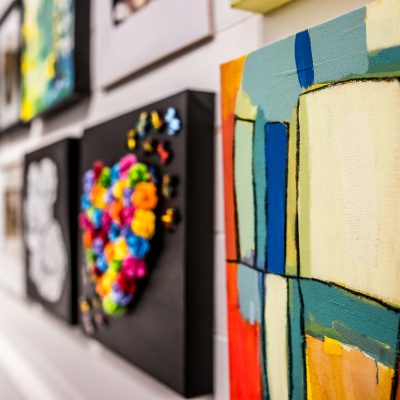
Creative Directory
Explore and connect with creative people, groups & spaces in Tauranga and Western BOP

